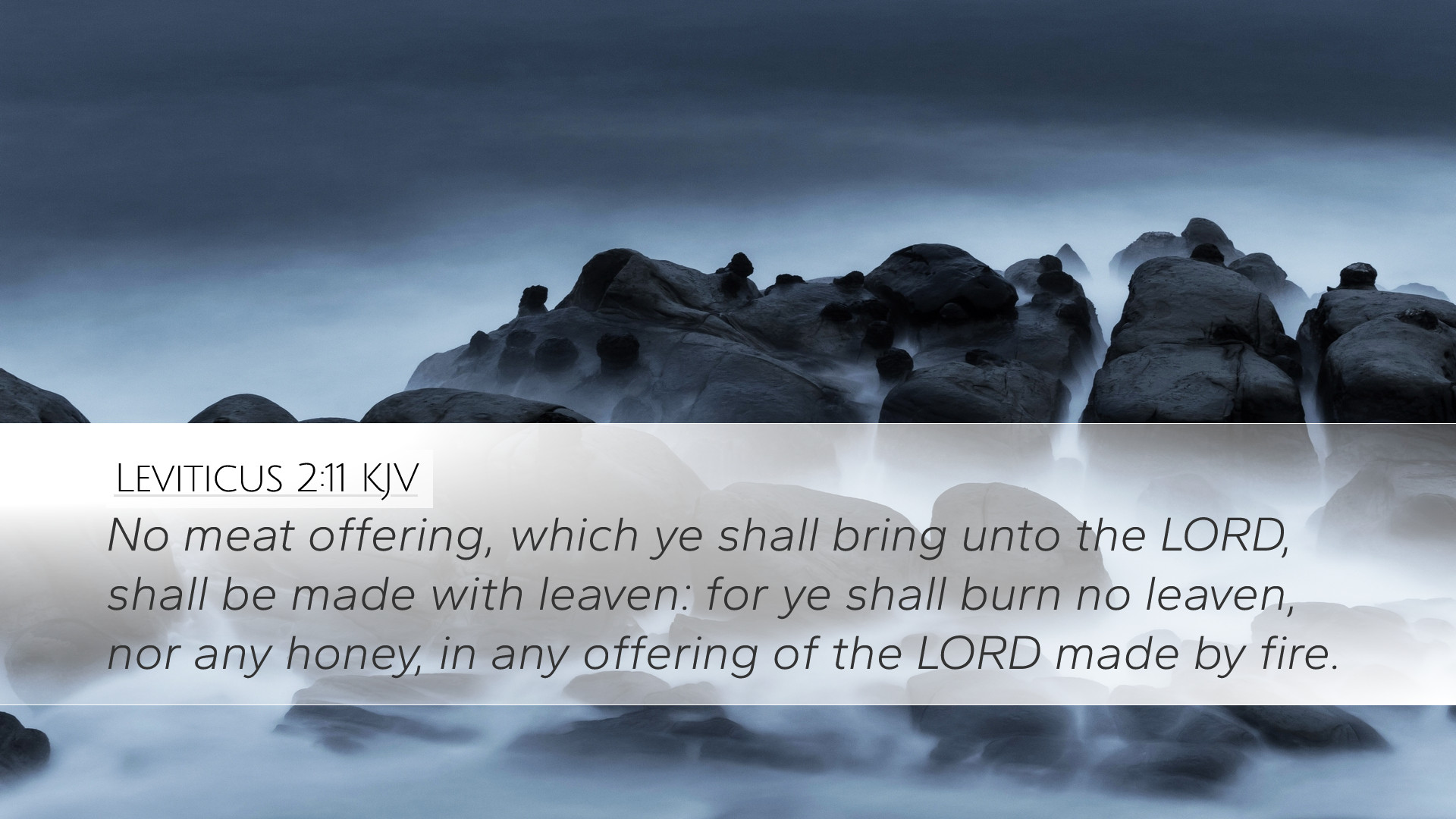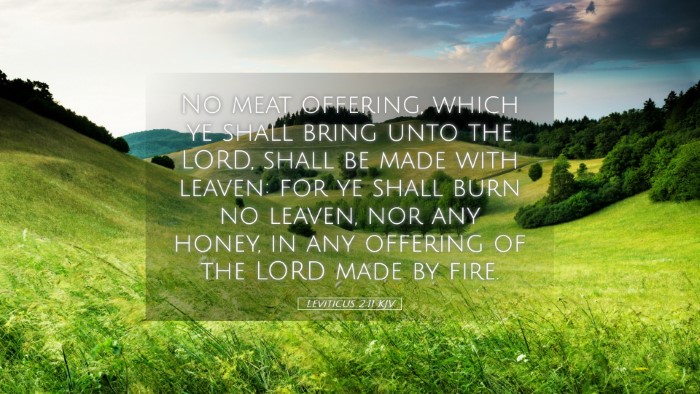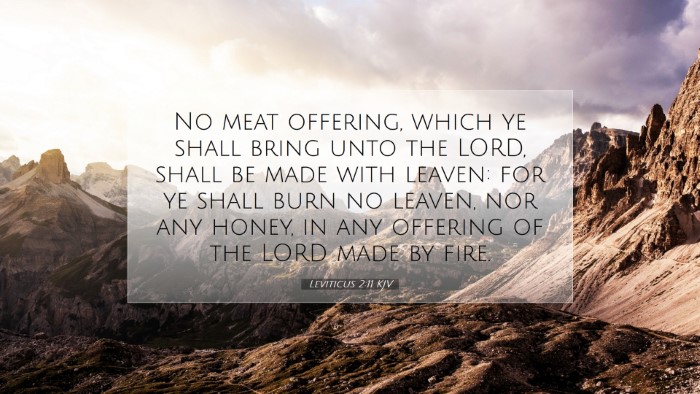Commentary on Leviticus 2:11
Verse Reference: Leviticus 2:11 states, "No grain offering that you bring to the LORD shall be made with leaven, for you shall burn no leaven nor any honey as a food offering to the LORD."
Introduction
This verse is part of the instructions regarding the grain offerings that the Israelites were to present to the Lord. The prohibition on leaven and honey in these offerings holds significant theological implications. Here's a summarized examination of this verse drawing insights from noted public domain commentaries.
Understanding Leaven
Leaven in Scripture: Leaven, which is yeast used in baking, typically represents corruption and sin in biblical texts. Matthew Henry offers insight that while leaven can cause bread to rise and seem more desirable, it symbolizes the corrupting influence of sin that can permeate one's life. This inherent symbolism is why leaven was excluded from the grain offering.
Implications for Offerings: Albert Barnes emphasizes that all offerings presented to God should be pure and untainted. The grain offering was a means of expressing gratitude and dedication to God, thereby necessitating the exclusion of anything that could symbolize sin. The notion that no leaven could be part of these offerings indicates that God demands sincerity and purity in worship.
The Role of Honey
Honey's Symbolism: The prohibition on honey is less frequently discussed. Adam Clarke notes that while honey is a source of sweetness and nourishment, it is not suitable for offerings due to its tendency to ferment like leaven. This suggests that even what is sweet can be inconsistent with the nature of offering to God when it comes to ceremonial purity.
Theological Reflection: Honey's exclusion prompts a deeper reflection on worship and service to God. While offerings should be sincere and from the heart, the nature of the offerings must also align with God's standards as made clear in the Law. It urges believers to examine their motives and the purity of what they bring to God.
The Importance of Precision in Worship
Divine Instruction: The regulations surrounding offerings indicate that God is particular about how He wishes to be worshiped. Matthew Henry illustrates that this precision should not be seen as legalism, but rather as a protective measure for maintaining the sanctity of worship. Worship must reflect God’s holiness and righteousness.
Lessons for Today: Barnes cautions modern readers against approaching worship with laxity. Just as the Israelites were instructed to be meticulous in their observance, believers today should reflect on the kind of offerings they present to the Lord, ensuring they are not tainted by personal sin or superficiality.
Worship and Community
Corporate Worship: The grain offering was often participatory and communal, representing the collective gratitude and sustenance of the community. Clarke illustrates that such a view invites believers to cultivate an atmosphere of holiness within the community of faith. A communal approach to worship must involve accountability to ensure collectively offered worship meets the standards of holiness.
Attributes of God's People: The exclusion of leaven and honey can also serve as an illustration of the character that God desires in His people. As the offerings are seen as a reflection of the people bringing them, the absence of these elements can be understood as a call to live lives free from corruption and to lay aside earthly sweetness that distracts from spiritual commitments.
Conclusion
The directives in Leviticus 2:11 concerning the grain offering emphasize the vital relationship between holiness, purity, and acceptable worship. The call for grain offerings devoid of leaven and honey serves both as a historical injunction for the Israelites and as a timeless exhortation for contemporary believers. Consistent with the teachings of Matthew Henry, Albert Barnes, and Adam Clarke, these aspects urge both individuals and communities to present offerings that are sincere and reflective of God's holiness, prompting a deeper commitment to integrity in both worship and everyday living.


